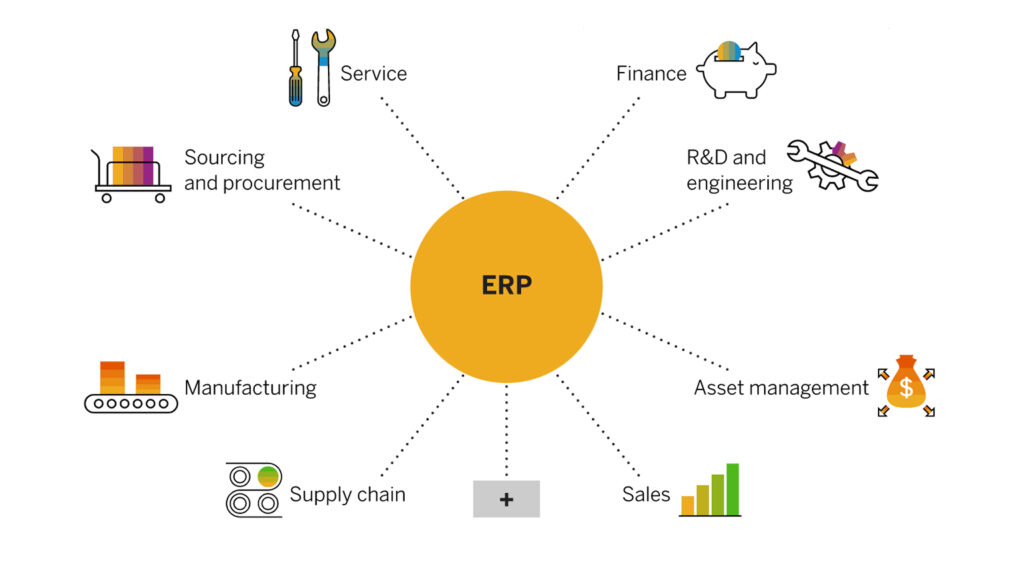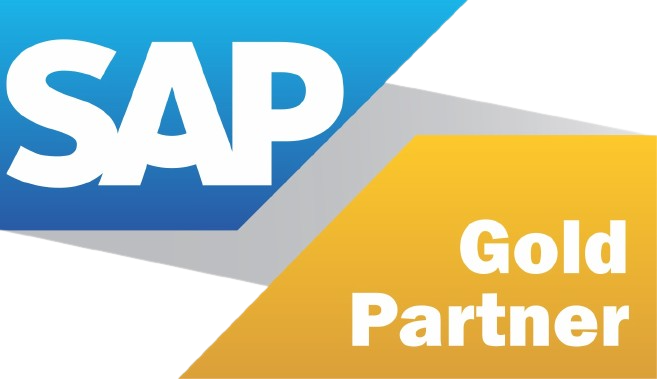
- April 19, 2023
- Alaa Mostafa
- 0
Common ERP modules
Enterprise resource planning systems include a variety of different modules. Each ERP module supports specific business processes – like finance, procurement, or manufacturing – and provides employees in that department with the transactions and insight they need to do their jobs. Every module connects to the ERP system, which delivers a single source of truth and accurate, shared data across departments.

Finance
The finance and accounting module is the backbone of most ERP systems. In addition to managing the general ledger and automating key financial tasks, it helps businesses track accounts payable (AP) and receivable (AR), close the books efficiently, generate financial reports, comply with revenue recognition standards, mitigate financial risk, and more.
Human resources management
Most ERP systems include an HR module that provides core capabilities such as time and attendance and payroll. Add-ons, or even entire human capital management (HCM) suites, can connect to the ERP and deliver more robust HR functionality – everything from workforce analytics to employee experience management.
Sourcing and procurement
The sourcing and procurement module helps businesses procure the materials and services they need to manufacture their goods – or the items they want to resell. The module centralizes and automates purchasing, including requests for quotes, contract creation, and approvals. It can minimize underbuying and overbuying, improve supplier negotiations with AI-powered analytics, and even seamlessly connect with buyer networks.
Sales
The sales module keeps track of communications with prospects and customers – and helps reps use data-driven insights to increase sales and target leads with the right promotions and upsells opportunities. It includes functionality for the order-to-cash process, including order management, contracts, billing, sales performance management, and sales force support.
Manufacturing
The manufacturing module is a key planning and execution component of ERP software. It helps companies simplify complex manufacturing processes and ensure production is in line with demand. This module typically includes functionality for material requirements planning (MRP), production scheduling, manufacturing execution, quality management, and more.
Logistics and supply chain management
Another key component of ERP systems, the supply chain module tracks the movement of goods and supplies throughout an organization’s supply chain. The module provides tools for real-time inventory management, warehousing operations, transportation, and logistics – and can help increase supply chain visibility and resilience.
Service
In an ERP, the service module helps companies deliver the reliable, personalized service customers have come to expect. The module can include tools for in-house repairs, spare parts, field service management, and service-based revenue streams. It also provides analytics to help service reps and technicians rapidly solve customer issues and improve loyalty.
R&D and engineering
Feature-rich ERP systems include an R&D and engineering module. This module provides tools for product design and development, product lifecycle management (PLM), product compliance, and more – so companies can quickly and cost-effectively create new innovations.
Enterprise asset management
Robust ERP systems can include an EAM module – which helps asset-intensive businesses minimize downtime and keep their machines and equipment running at peak efficiency. This module contains functionality for predictive maintenance, scheduling, asset operations, planning, environment, health, and safety (EHS).
Source: SAP Insights


